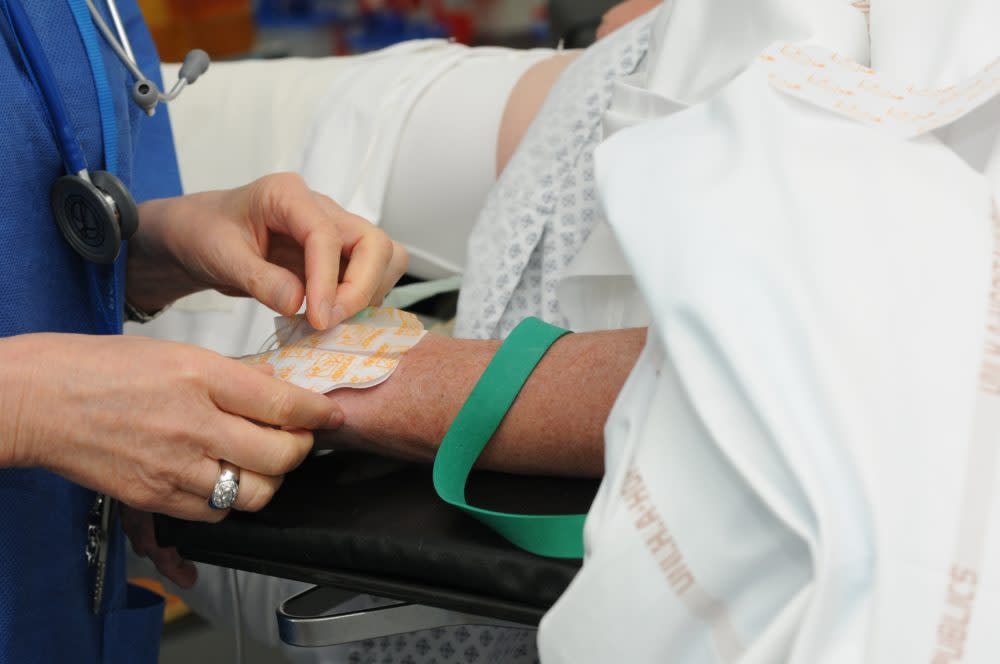What happens to your body when you go into septic shock?
News recently broke of Kyler Baughman, the 21-year-old body builder who contracted sepsis from the flu and died within a few days. The tragic story has led to questions not only about the severity of this year’s flu virus, but also about sepsis. Specifically: What is sepsis, and what does septic shock do to your body?
Septic shock itself is not an infection or a virus, but rather the result of an existing infection. It occurs when your body begins fighting itself instead of the actual illness, causing internal inflammation. Sepsis can be caused by a bacterial, fungal, or viral infection, including urinary tract infections, pneumonia, and yes, the influenza virus. Septic shock occurs when your organs begin to shut down due to inflammation.
Unfortunately, sepsis can spread fast, so it’s critical to know what happens when your body is going into septic shock. When the infection reaches your bloodstream, you may see early signs of sepsis, including a fever higher than 101˚F paired with feeling cold, an elevated heart rate, and/or rapid breathing of more than 20 breaths per minute, according to Healthline.
If you’re having a high risk procedure make sure you & your family know the signs & symptoms of #sepsis. If you get an infection, if you were recovering then become unwell, if you show any of these symptoms ask “Could it be sepsis?” Every second counts. pic.twitter.com/PN28jNJqzN
— Michelle Williams (@MCarsonWilliams) January 7, 2018
Also according to Healthline, “severe sepsis is when the infection is severe enough to affect the function of your organs, such as the heart, brain, and kidneys, and septic shock is when you experience a significant drop in blood pressure that can lead to respiratory or heart failure, stroke, failure of other organs, and death.”
Septic shock occurs most often in the elderly or those with an already weakened immune system (such as someone fighting off an existing infection or illness), but anyone can go into septic shock.
Symptoms Post- #Sepsis:
Muscle Weakness
Fatigue
Difficulty swallowing
Cloudy thinking
Difficulty concentrating
Poor memory
Difficulty sleeping
Sadness
Anxiety
Higher risk of another infectionhttps://t.co/rUOmJi7n3C@SimplySepsis@WorldSepsisDay
— Olga Pena, PhD (@OlgaPena) January 10, 2018
As for severe sepsis, Healthline notes that the warning signs include noticeably “lower amounts of urine, acute confusion, dizziness, severe problems breathing, and/or bluish discoloration of the fingertips or lips,” with markedly lower blood pressure.
If you think you or a loved one is experiencing these or other worrying symptoms, you should seek medical attention immediately. The earlier the condition is diagnosed and treated, the higher the rate of survival.

 Yahoo News
Yahoo News 

